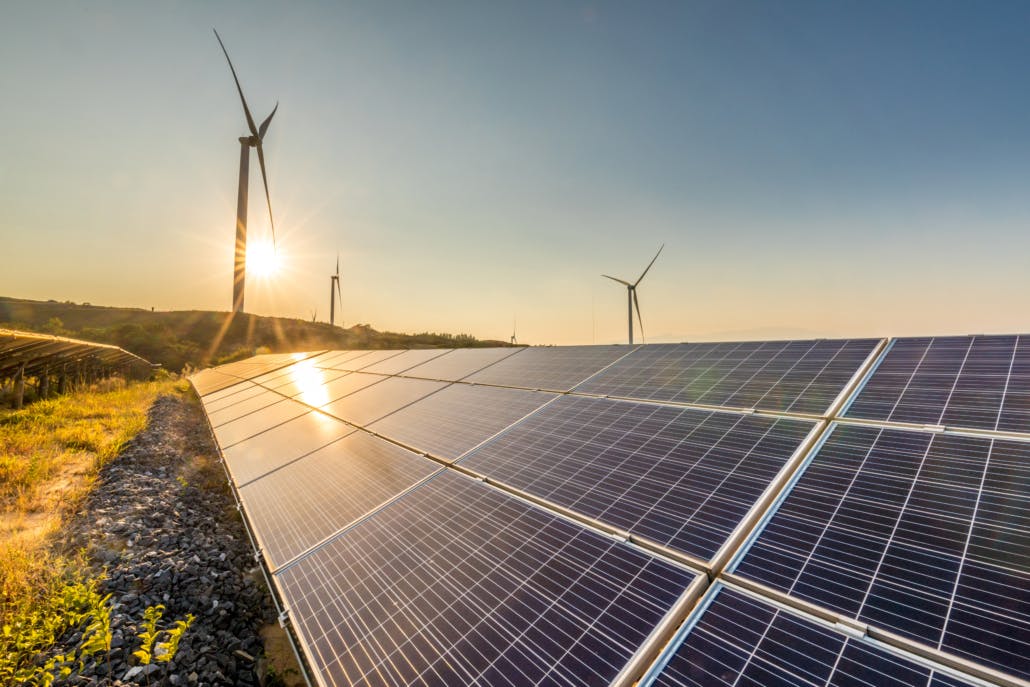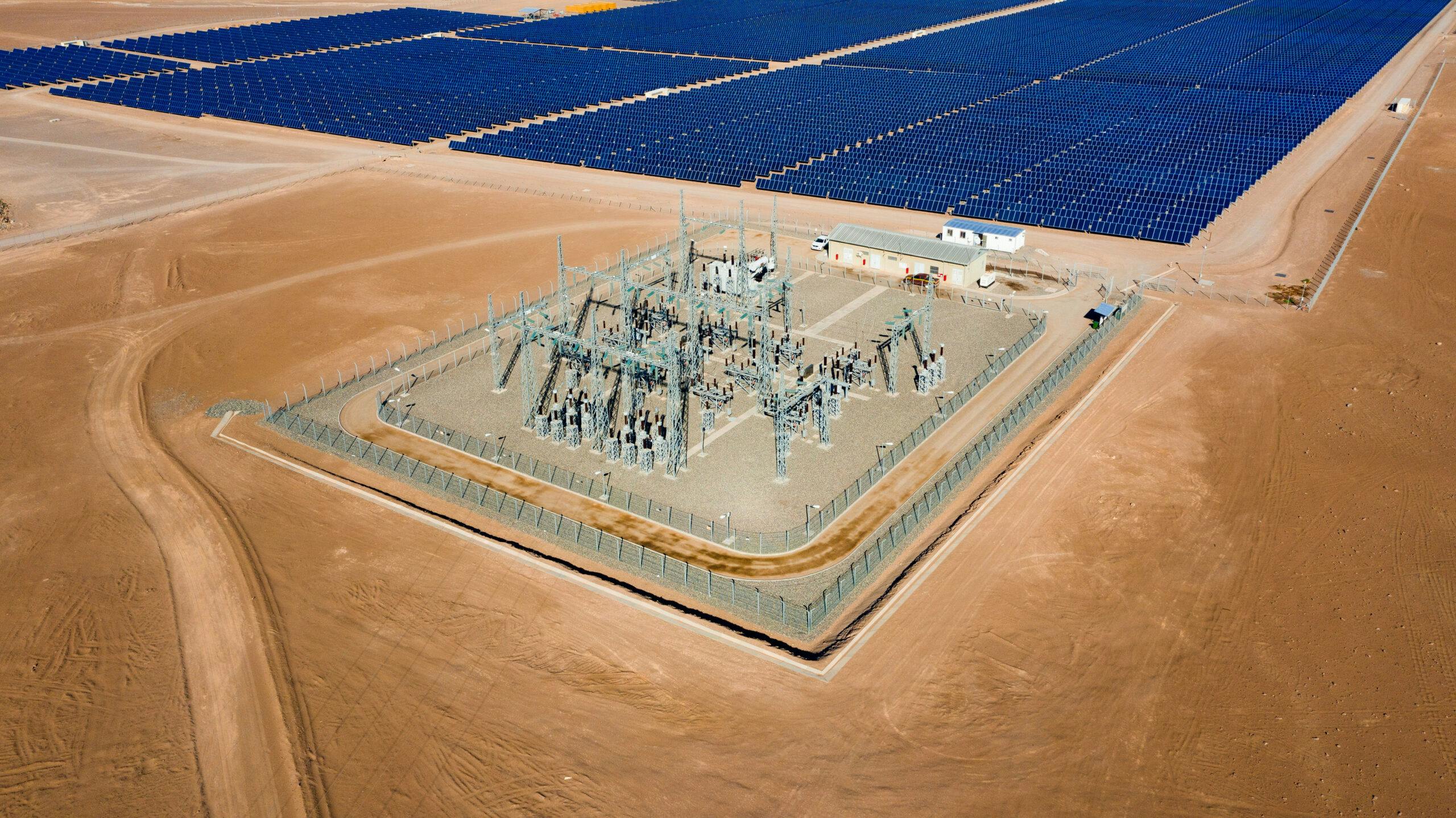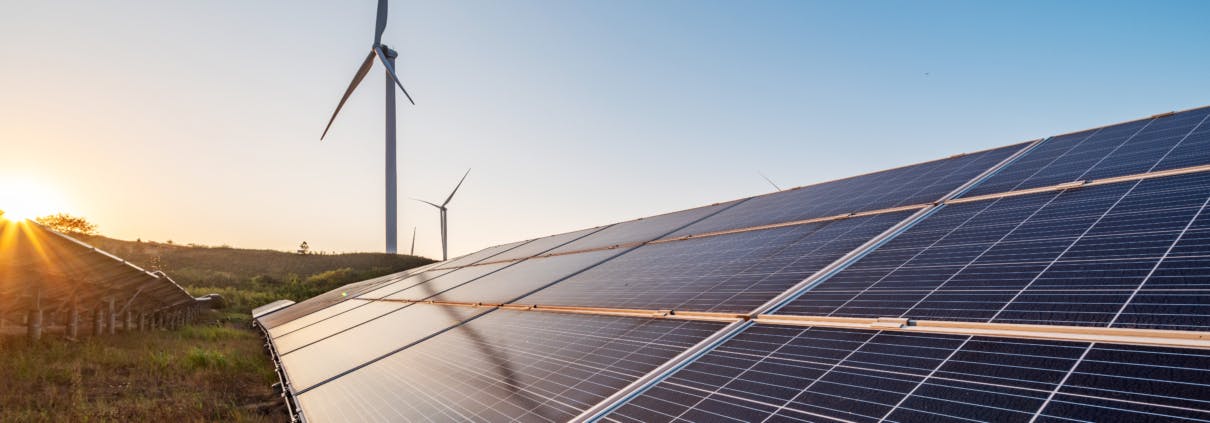Creating renewable energy success stories: experience in the chemical sector

At Atlas Renewable Energy, we recently signed a renewable power purchase agreement with the Brazilian subsidiary of the American material science giant Dow. This landmark deal lays the framework for chemical companies across Latin America to meet their environmental objectives while lowering energy costs at the same time. In this article, we take a closer look at what makes this project so innovative.
Like most industrial companies, Dow has long sought to reduce the environmental and cost implications of its energy-intensive activities. Its leading position as a supplier of chemicals, plastics, synthetic fibers, and agricultural products also means it’s one of the world’s largest industrial energy consumers.
In the past, Dow utilized grid power and fossil fuels to power its plants, but as renewable energy has become more competitive and available in recent years, it has started to rethink its energy portfolio, setting itself a hard target to meet 750 MW of its power demand with renewables by 2025, and achieve carbon neutrality by 2050.
To help achieve this ambitious goal, the company has partnered with Atlas to provide clean energy to its Aratu complex in Brazil, the largest Dow manufacturing facility in the country.
This groundbreaking agreement not only avoids approximately 35,000 metric tons of CO2 emissions per year – the equivalent of taking around 36,800 cars off of the streets of São Paulo – but it lays the foundation for the rest of the Latin American chemicals industry to harness the benefits of renewable energy to achieve climate change mitigation goals while locking in stable energy prices for the long term.
CREATING EFFICIENCIES
Under the 15-year power purchase agreement, we will provide Dow with clean energy from our 187MWp Jacaranda solar project, located in the municipality of Juazeiro in Bahia State. The plant will generate 440GWh per year, which is enough to supply power to a city of over 750,000 inhabitants, enabling Dow to get closer to its renewable energy sourcing goals.
One of the key issues with solar power is intermittency – the sun doesn’t shine 24 hours a day. Because Dow needs all-day power, Atlas will swap energy from Jacaranda with other renewable energy providers to guarantee a full-cycle supply. Essentially, by packaging up our solar power with additional renewable sources that are available on the market, we’ve made it possible for Dow to meet all of its energy needs with renewables – not just its daytime needs. This is the first time that this has been done in Brazil and opens opportunities for companies who may have been dissuaded from using renewables because of their electricity demand profile.
As a large energy user, electricity accounts for a huge proportion of Dow’s fixed costs, and even the tiniest increase can have an enormous impact on its bottom line. To tackle this, Atlas built in a series of efficiency-boosting measures.
The first is the bifacial modules used in the plant, which can deliver a power generation gain of up to 9% over equivalent mono facial panels, cutting down on land use for the same amount of electricity. Second, the project is being connected to Atlas’ digital substation, which enhances controllability and reliability while optimizing costs. But the efficiency doesn’t stop there: we also implemented a unique US dollar financing structure that created a natural currency hedge.
SPEAKING THE SAME LANGUAGE
In selecting a partner to help it achieve its aims, Dow was looking for a like-minded company with similar values. That’s why, aside from clean energy and favorable pricing as part of the Atlas Green Finance Framework – our commitment to developing projects that protect and preserve the environment – we also incorporated our signature social engagement. At the Jacaranda plant, we are offering opportunities to the local community that promote diversity and inclusion within the construction’s hiring process. To do this – and to get this right – we have brought in NGOs and local authorities to help us provide training in specialized fields to local women, and we’re incentivizing our local contractors to prioritize people from minority backgrounds in their hiring processes.
A TRUSTED AND CAPABLE PARTNER
Achieving all of this during the turbulence and upheaval that 2020 has brought to the world was no mean feat. We’ve worked hard to ensure the health and safety of workers on our sites because we know how important renewable energy is to the recovery of Latin America’s economy post-Covid19. As a result, our operational capabilities, our execution, and our closing speed have remained optimal.
We’ve been able to do all of this because we’re not new to this. We already have four projects operating in Brazil and several more across the region. All of them have been delivered on time and on budget, and this has boosted our reputation among lenders and partners alike. Because of this, in spite of the tough economic and financial backdrop, we’re in the privileged position of being able to negotiate favorable funding conditions – which translates to cost savings that we can pass on to our customers.
THE BEGINNING OF A TREND
In Latin America, renewable energy is already as affordable as – if not cheaper than – traditional sources. This Corporate Power Purchase Agreement, which leverages financial, operational, and technological innovation, makes it possible for large energy consumers in the chemical industry and beyond to make a huge step towards achieving their carbon emission reduction goals while gaining real visibility over their long-term energy costs.
We’re seeing an increasing number of inquiries from these kinds of companies, and we continue to find competitive solutions for them. The mining industry has already got on board – from the Atlas’ Casablanca plant, which will supply clean energy to mining giant Anglo American in Brazil, to our Javiera plant in Chile, which already powers a copper mine. Our agreement with Dow shows just how much we can achieve when two leaders i
n their respective fields get together. We believe it paves the way now for the chemical industry to join the green energy revolution – all around the region.
Share This Entry


